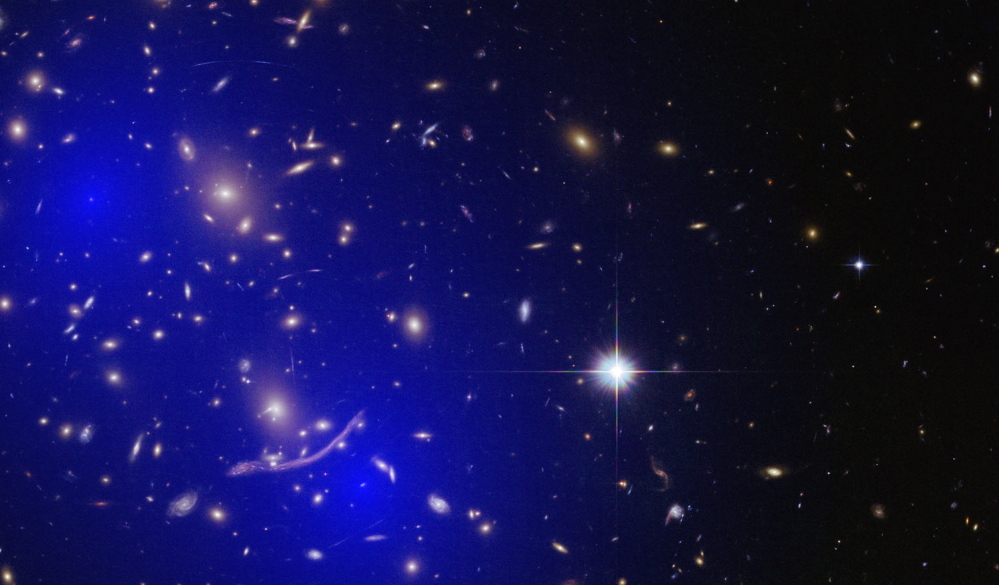A new study published Thursday in Science suggests that dark matter might be able to zip through the universe without slowing or dragging because particles of it don’t even interact with each other.
Based on what we can observe about the universe, galaxies should be tearing themselves apart. Dark matter is a term for the as-yet-unobserved matter that must be bulking up the cosmos, giving galaxies the gravity they need to spin at the rates they do without falling to pieces.
Dark matter is so named because it doesn’t interact with light the way normal matter does – not absorbing or reflecting it – though it does bend light with a weird lensing effect.
But even though we haven’t caught it in a straightforward observation, scientists can learn about it based on the effects it has on more typical, observable forms of matter.
In this study, researchers looked at galaxy clusters to study how dark matter might behave when galaxies collide with each other. The gas inside galaxies slows down when it hits other gas, and stars tend to be too spread out to actually collide with each other or interact.
In watching 72 galactic showdowns, researchers found that dark matter didn’t slow down when clusters collided.
That was unexpected, because scientists think that dark matter is common in the universe, perhaps making up as much as 90 percent of total matter.
So dark matter had to be hitting other dark matter en route, but these unseen particles weren’t showing any evidence of dragging against each other.
So basically, dark matter is even less like “regular” matter than we thought.
Send questions/comments to the editors.



Success. Please wait for the page to reload. If the page does not reload within 5 seconds, please refresh the page.
Enter your email and password to access comments.
Hi, to comment on stories you must . This profile is in addition to your subscription and website login.
Already have a commenting profile? .
Invalid username/password.
Please check your email to confirm and complete your registration.
Only subscribers are eligible to post comments. Please subscribe or login first for digital access. Here’s why.
Use the form below to reset your password. When you've submitted your account email, we will send an email with a reset code.